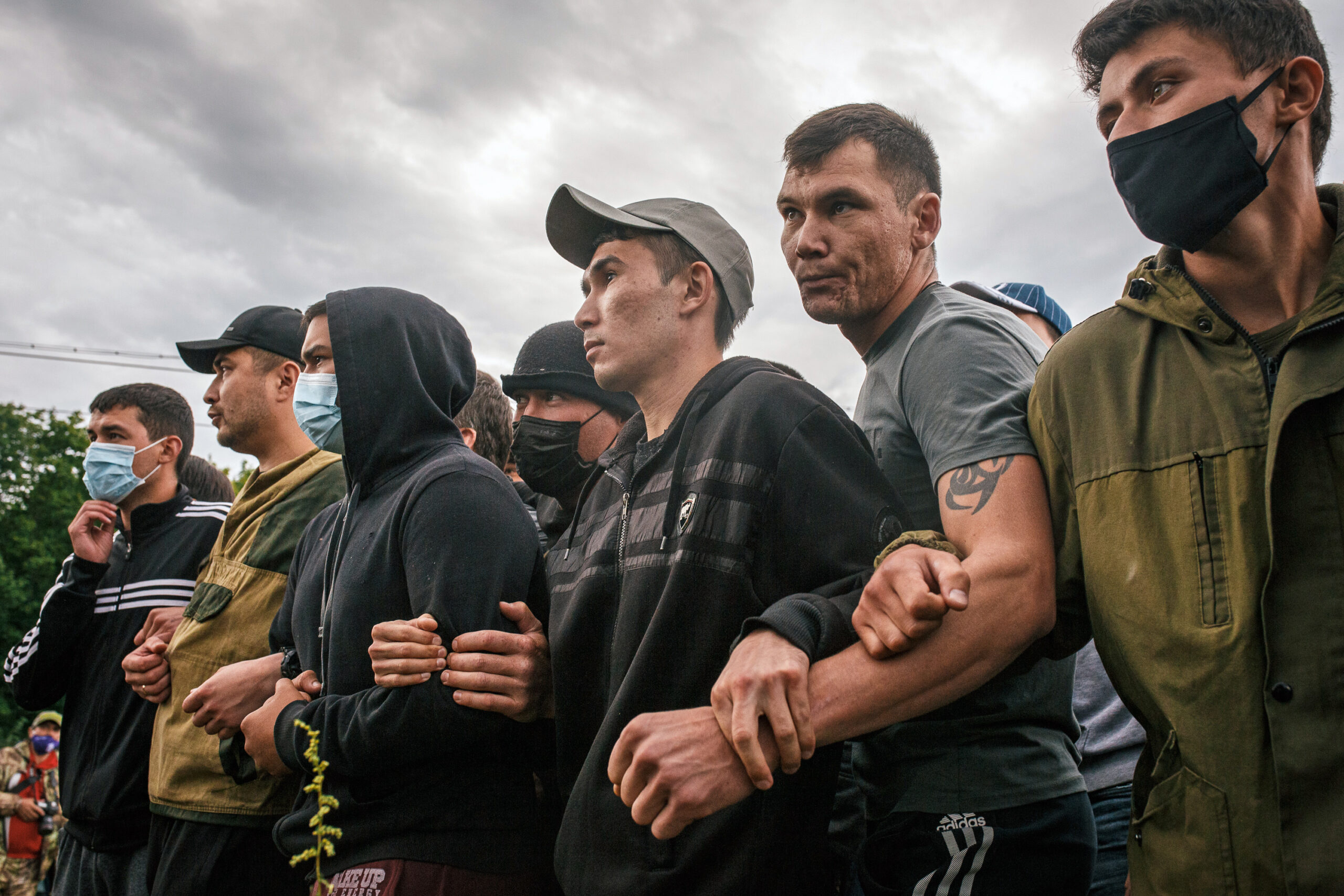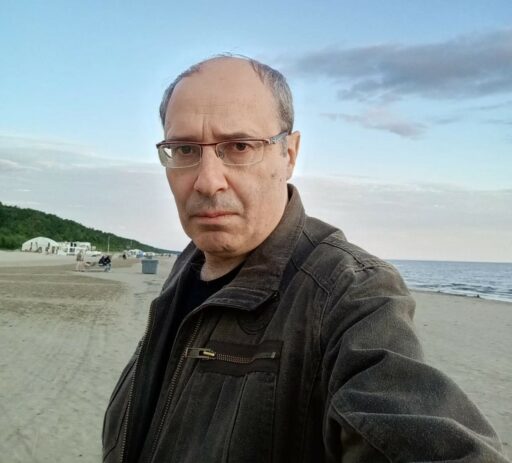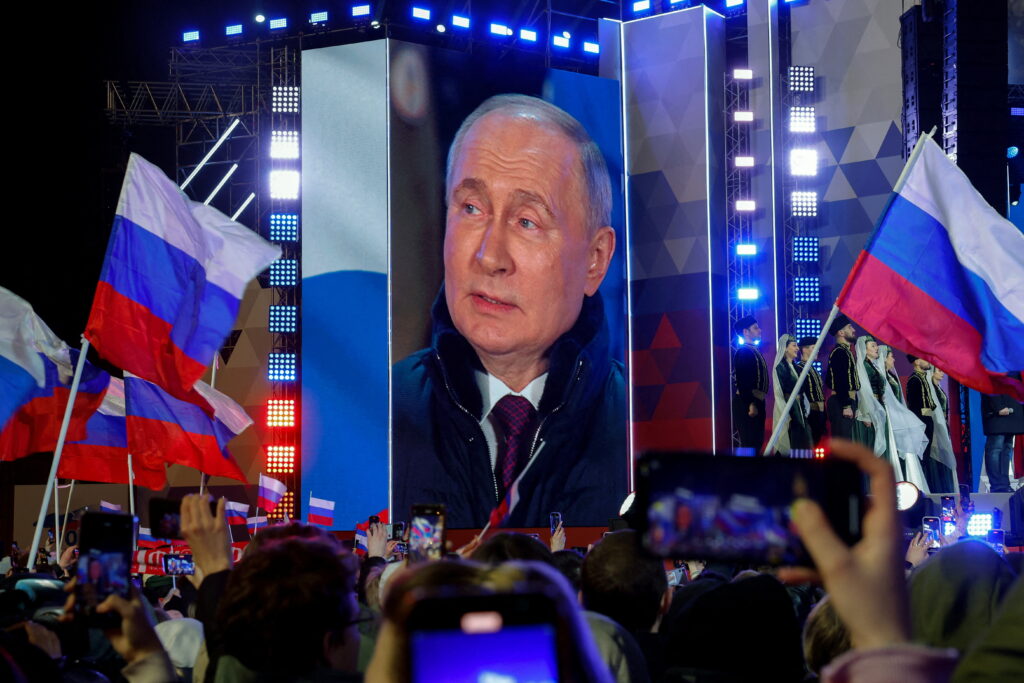The general trend in the economic development of Russia’s regions is still a slow decline in living standards with more and more «holes» appearing in regional budgets. However, the signs of growing social tensions are still subtle. Firstly, the tightening of the screws by the political regime, police violence and brutality keep a significant part of the impoverished urban population in fear. Second, two groups that have recently come to be associated with various military industries have been singled out. Employees of military factories have enjoyed a pay rise and are now earning between 80,000 and 130,000 rubles a month (800−1,300 euro), depending on the region. Such salaries remain out of reach for the vast majority of the working population. In most regions, the average salary is between 20,000 and 35,000 rubles (200−350 euro). Fear and habitual poverty remain the main psychological factors explaining the very low level of protest activity.
Collective labor disputes and other mass protests
Despite the prevailing atmosphere, protest movements do emerge. The most notable example of professional solidarity is the recent series of protests by medical workers. Such actions took place in January 2024 in the Nizhny Novgorod, Arkhangelsk and Sverdlovsk regions.
In the Nizhny Novgorod region, ambulance workers at the Chkalovskaya central district hospital threatened to strike on 10 January this year. The demands published by the strike committee explain that the monthly rate for ambulance nurses is around 13.500 rubles a month (350 euro). The workers are therefore forced to work overtime in order to supplement their meager income. The very same days, paramedics in Arkhangelsk and Novodvinsk publicly expressed their dissatisfaction with their low salaries. They also threatened to go on strike. Finally, on 15 January, in the Urals city of Kushva (Sverdlovsk Region), employees of an ambulance station also protested against humiliatingly low salaries. They recorded a video in which they addressed President Vladimir Putin, the governor of the Sverdlovsk region, Yevgeny Kuivashev, and the region’s health minister, Andrey Karlov and articulated a series of demands. Their salaries range from 20,000 to 28,000 rubles (200−280 euro), while the average in the region is 63,000 (630 euro). These demands raise questions about the reliability of Rosstat data on «average salaries» in the regions. It is safe to assume that the synchronous actions of these healthcare workers were coordinated by the independent trade union of medical workers called «Action».
The mass street protests that also took place last year were almost exclusively related to the struggle of local residents for a better environment. Specifically, people rallied against plans to build huge waste dumps or expand existing ones.
This, around the village of Poltavskaya (Krasnoarmeysky district, Krasnodar region), rallies have been combined with blockades of the road leading to the landfill. The last protest was held here on 5 September 2023. Without trying to disperse the demonstrators. The police have drawn up a number of reports on administrative offences. On any given day, no more than 30 people took part in blocking the village road, but in just one year, about a thousand residents of the village took part in rallies and road blockades.
In November 2023, residents of the village of Pavlovsk in the Altai region (and some neighboring villages) began mass protests against the construction of a waste processing plant. First, on 15 November, a meeting of residents was held directly in front of the settlement administration building. After negotiating with the protesters, the administration suggested holding a rally in the town stadium. It took place on 25 November: about a thousand people came (the police counted 650) out of the 13,000 inhabitants of the settlement. The organizers (led by the leader of the local Communist Party, Maria Prusakova) promised to refrain from using political slogans and party symbols.
On 15 October, the residents of Syserti, a district center in the south of the Sverdlovsk region, held a rally against the construction of a rubbish dump. Several hundred people took part. The placards carried by the demonstrators read «Farmland for farmers, not bankers», «Money can’t buy clean air», «Putin, help!!!». The organizers are now trying to initiate a local referendum.
Mass protests not directly related to environmental protection include uncoordinated protests against cascading power grid failures in several districts of Makhachkala. Since 9 August, residents of the central districts of Dagestan’s capital have blocked various streets in the city five times protesting against power cuts.
And then there are the protests in Bashkortostan. On 28 April 2023, at a meeting in the village of Ishmurzino attended by around a thousand people, several speeches were made, mainly on the subject of illegal gold mining and the use of environmentally harmful technologies. Among the speakers was Fail Alsynov, one of the founders of the previously banned Bashkort organisation. On 20 May, an even larger rally, allowed by the authorities, was held in the village of Temyasovo against geological exploration on the Irendyk ridge. Anywhere between five and seven thousand people took part in the action. The result of the meeting was an appeal to Vladimir Putin and the head of the Investigative Committee, Alexan Bastrykin, with the request to stop the extraction of useful minerals, which is being carried out with violations of technology.
It seems that this social movement has made the head of the republic, Radiy Khabirov, really angry. The activists have certainly disrupted the implementation of a number of business plans in which the region’s top brass were interested. Moreover, Khabirov feared the Kremlin’s wrath, and Moscow might see in these rallies a revival of the nationalist movement, which could return to the separatist agenda. However, there was no talk of separatism, i.e. the separation of Bashkortostan from the Russian Federation in the speeches and publications of Fail Alsynov and his associates. This issue is not popular in Bashkortostan today, as the republic’s population is multiethnic, with ethnic Bashkirs making up no more than 30% of the population.
Yet Khabirov certainly remembered that his predecessor, Rustem Khamitov, had been forced to resign after similar actions in Temyasovo and Sibai. In October 2023, it emerged that Khabirov had personally submitted a statement to the Investigative Committee accusing Fail Alsynov of inciting ethnic hatred. On 17 January, a court in the district center of Baymak sentenced him to four years’ imprisonment, a harsher punishment than the prosecution had proposed. For two days, the court building was surrounded by a crowd of between 5,000 and 10,000 people that supported Alsynov’s activism.
Two days later, Alsynov’s supporters, outraged by the harsh verdict, gathered again in the center of Ufa on Salavat Yulaev Square. Although the police were present in the square from the start, the action was relatively calm. Later, reports began to emerge that changed the whole picture: it became known that two of those detained in the square in Ufa and later elsewhere had been severely beaten and mutilated (one had a broken spine), and that one rally participant (Rifat Daudov) had died.
Some time later, the authorities organized a rally in the center of Ufa in support of the head of the republic, Khabirov, to which several thousand people were bussed. A few days later, at the ‘Kurultai Bashkir’, a meeting with local intellectuals, Khabirov staunchly refused to honour Daudov’s memory, saying that the murdered man had been accused of a serious crime. It should be noted that Daudov had not yet been accused of anything, and his death occurred while he was in a police van.
Protest actions initiated by party groups
We thought it appropriate to examine the role of only two political parties in protest actions: the Communist party (CPRF) and «Yabloko». In fact, these two political forces are the only ones that, to a greater or lesser extent, find it necessary to periodically signal their opposition status through such actions.
The current state of the CPRF is interesting for at least one reason. The party has an extensive regional structure, and its regional branches work «in the field», allowing the party leadership to report the work they have done on the ground in «defense of the people’s interests.» But it is important to note that the oppositional character of the CPRF, a party embedded in the current regime as a satellite of the «United Russia» party, is a fiction. Few people in the country know that the CPRF leadership has created the «All-Russian Headquarters of the Protest Movement». The biggest «protest action» undertaken by this headquarters was an appeal dedicated to the nomination of Nikolai Kharitonov as a candidate for the post of President of the Russian Federation. At the same time, party activists regularly take part in various low-profile protest actions at the regional level, which are rarely covered by the mainstream media. It is worth mentioning some of them — for example, from August 2023 to January 2024.
On 12 August 2023, the CPRF held a rally in Chita with placards and slogans against the increase in petrol and diesel prices. Interestingly, the city authorities did not initially authorize the event. Party representatives complained to the prosecutor’s office, and after some hesitation and negotiation the rally was allowed.
On 29 August, a rally organized by the CPRF took place in Tomsk against the increase in tariffs for housing and communal services. The rally was coordinated with the city administration and gathered several dozen people. A representative of the city party committee said: «Freezing the tariffs for housing and utilities is a real tool to support Russians against the backdrop of the crisis and Western sanctions. There is money in the country, a lot of money, but it does not go into the pockets of the workers.» Meanwhile, the authorities are spending huge sums of money on a senseless war, but the CPRF member cannot talk about it. There were also demands at the rally for the release of political prisoners. But most likely they meant «their own» activists: several «left» activists, especially from Ufa, have been in pre-trial detention for a long time. At the time, Udaltsov had not yet been arrested.
On 21 September, a rally was held in Kirov in protest against rising petrol prices and tariffs agreed with the city authorities. About 100 people took part in it. As in Tomsk, the rally was led mainly by representatives of the youth organization of the Communist Party of the Russian Federation: members of the Komsomol.
On 23 September, about 100 people gathered at a rally in Penza dedicated to the common problems of the city. The main issues: «the increase in the prices of housing and utilities, petrol and consumer goods». During the rally, those gathered chanted: «This is our city!», «The United Russia party to the dustbin!». Both CPRF activists and allies, representatives of the very small organizations «Left Front» and «For New Socialism» were given the floor.
It should be noted that in 2022−2023, many requests from CPRF activists for permission to organize rallies and demonstrations in connection with economic protests were not approved by the municipal authorities.
We can see that the CPRF has indeed become an integral part of the current regime, accepting the role of the main satellite partner of the ruling group, but retaining certain independence. This independence is more evident in the regions, where there is still a very narrow corridor for independent party activities or even inter-party competition. At this level it is still possible to discuss real problems such as rising prices and utility tariffs, low wages, environmental pollution, etc. At the same time, it is absolutely inadmissible for a CPRF activist to publicly suggest that the war and huge military expenditures are the main cause of inflation and the decline in living standards for the majority of the population in the regions (leaving aside the employees of existing military
enterprises).
The «Yabloko» party retains its place in the Russian party political system, although its role appears to be largely decorative. The preservation of the party’s legal status, property base and information resources is a consequence of Putin’s vague idea of the design of the political system he has built in recent years. One of the elements of this design remains this liberal party, which is well enough known to be mentioned when necessary and weak enough to participate in elections at various levels without posing any real threat to the regime.
Perhaps Putin sees the participation of the old liberal party in the farces that substitute for real elections (especially at the federal level) as a condition for the legitimacy of the entire party system he has created. It can be assumed that he sometimes finds it useful to make certain agreements with the party (its permanent leader) that are based on the strategy of the presidential administration. Yavlinsky’s meeting with Putin on 26 October has once again proved this. Although this time the «Yabloko» leader apparently refused to take part in the «presidential election» in any capacity.
In the context of this analysis, it is important to note that «Yabloko» has a network of real regional branches (though not as extensive as the CPRF) that are more or less active, including in protest actions. Since the outbreak of the full-scale war, it has become extremely difficult to coordinate and organize such actions. Given the party’s anti-war stance, even symbolic actions are an act of civil courage.
In late April, St. Petersburg branch of «Yabloko» was repeatedly denied permission to hold a rally against electronic draft notices in Murino (a town near St. Petersburg). In particular, the local authorities claimed that the venue where the rally was announced to take place would host an event called «St George’s Ribbons». Previously, the refusal had been explained by the fact that the application for the rally had been submitted electronically.
«Yabloko» had about the same success with an application to hold a rally in Novosibirsk called «For Peace!» and «Against the Violation of Citizens’ Rights in the Law on Electronic Draft Notices». In his reply, the deputy mayor (a member of the CPRF) drew the attention of the «Yabloko» representative to the existence in the Criminal Code of the Russian Federation of such offences as «public dissemination of deliberately false information about the use of the armed forces of the Russian Federation for the purpose of (…) maintaining international peace and security.»
Nevertheless, the party managed to organize several protests.
On 22 October 2023, a picket against Russia’s deratification of the Comprehensive Nuclear-Test-Ban Treaty was held in Yekaterinburg, organized by the Sverdlovsk regional branch of the Yabloko party. Several members of the regional branch, «Yabloko» youth activists and Yekaterinburg residents took part in the action. It is unlikely that such a picket in the city center would have lasted long. Thus, the local «Hyde Park» (the park named after the 50th anniversary of the Komsomol) was chosen as the venue: it is actually a corner of an urban forest.
On 30 October 2023, on the Day of Remembrance of Victims of Political Repression, Novgorod «Yabloko» organized a rally at the memorial sign to the victims of Stalin’s terror (Musa Dzhalil Street). The participants of the rally read the names of Novgorod residents shot during the Stalinist terror and extracts from the letters of today’s political prisoners. The organizers have received permission for the rally from the Veliky Novgorod city authorities.
In February 2024, the party leadership wanted to hold traditional actions in memory of Boris Nemtsov. It should be noted that a year ago, on 27 February 2023, «Yabloko» held memorial rallies in Moscow on the Bolshoi Moskvoretsky Bridge and in St. Petersburg on Troitskaya Square, and the police did not intervene. But this year the mayoralties of Chelyabinsk and Barnaul refused to sanction such rallies. Following the assassination of Alexei Navalny, the situation has changed radically.
However, it should be noted that «Yabloko» is still the only legally operating political group that has repeatedly tried to hold rallies under the slogan «For Peace! In all cases (in Murino, Novosibirsk and elsewhere) the authorities refused to grant permission for such actions.
Apparently, the leaders of the «Yabloko» party consider the current situation in the country to be catastrophic, and of course their inclusion in the artificial party system is an act largely forced upon them. The party is obliged to observe the same conditions as other parties that are allowed to exist: under no circumstances should it criticize Putin personally or attempt to consolidate with politically close organizations that might irritate the Kremlin. Large-scale actions in defense of political rights (especially the right to vote) are no longer possible. But even if for some reason such an action were possible, the party would lack the resources and, frankly, the political authority to carry it out.
We have not touched here on the actions dedicated to the memory of Alexei Navalny that took place in a number of cities on 17−19 February. This is a separate and important topic but is beyond the scope of this article.










